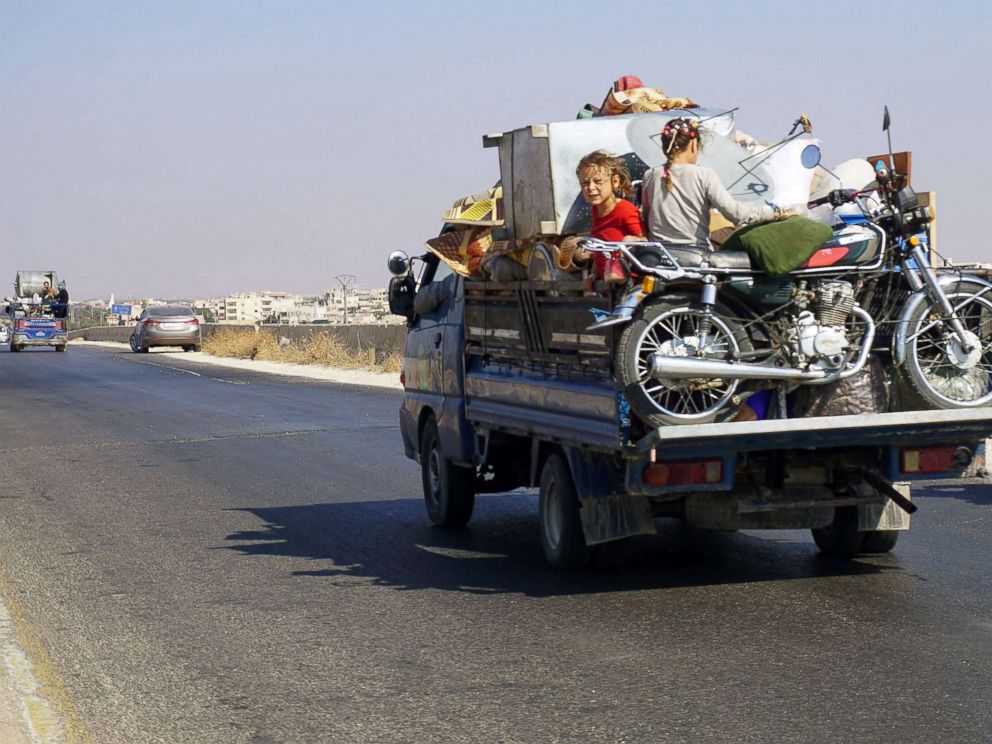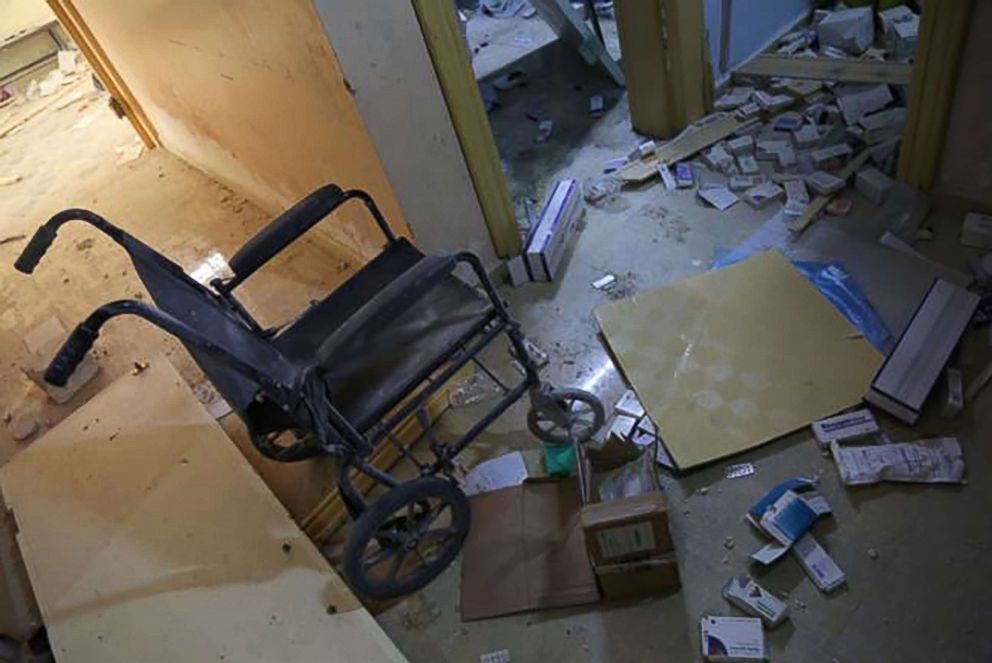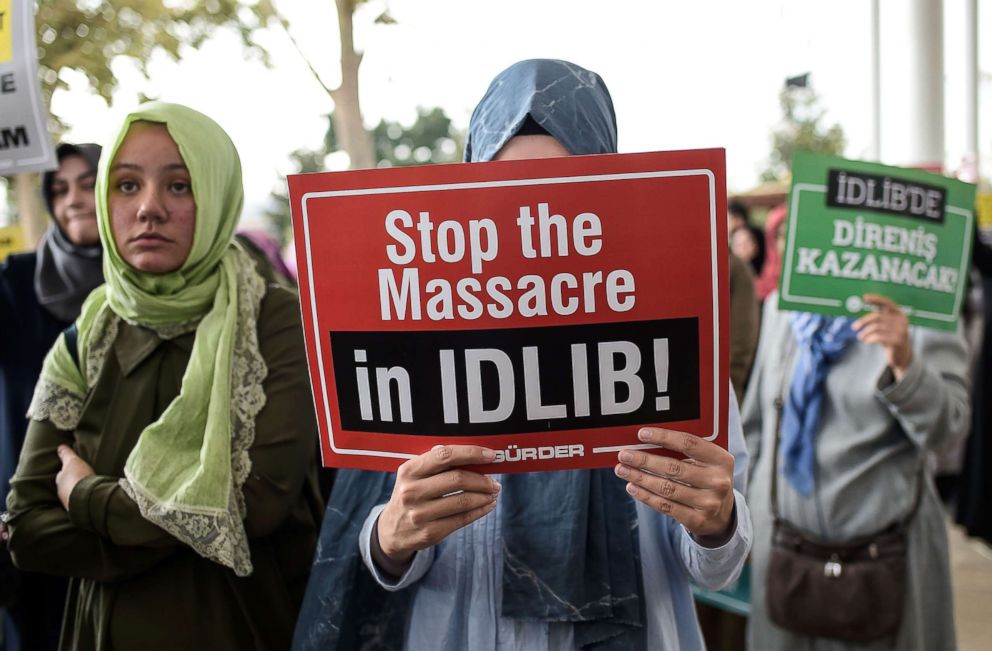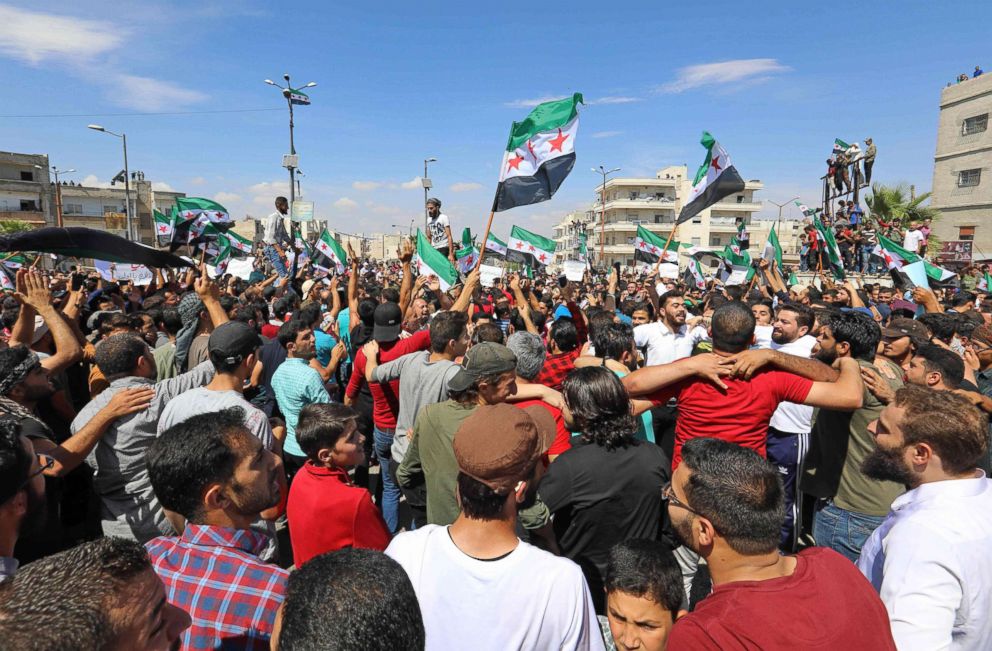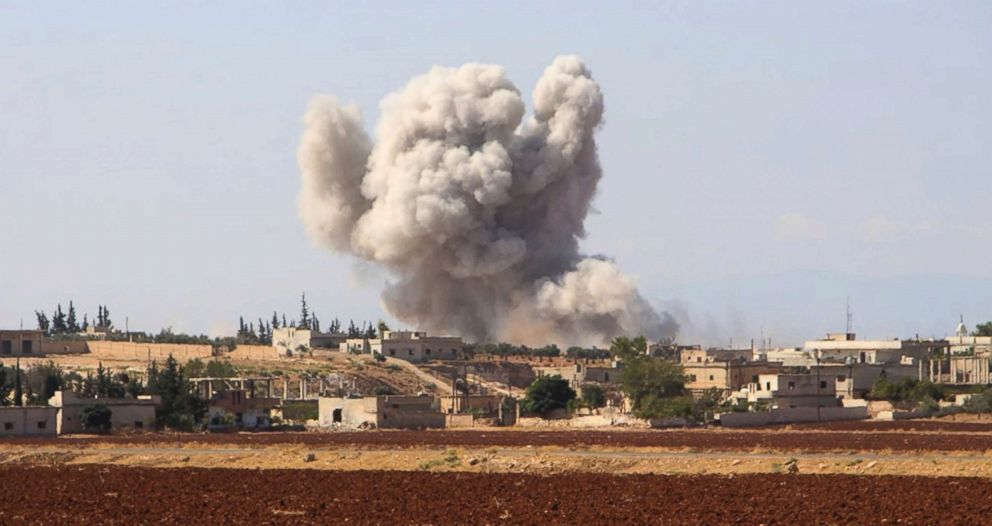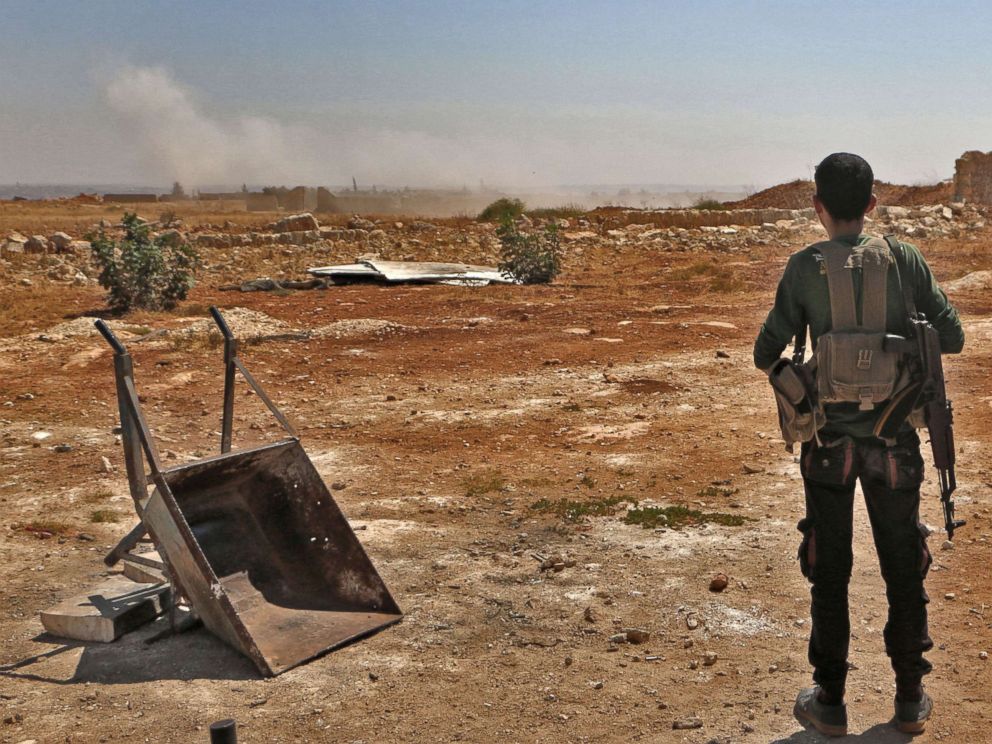A full-on assault against Syria’s Idlib province that was predicted to turn the region into a “lake of blood” appears to have been put on hold for the time being because the Syrian regime doesn’t have the troops necessary to launch it.
Interested in Syria?
The major military offensive by forces loyal to Syrian President Bashar al-Assad is expected to include support from the Syrian government’s Russian and Iranian allies. Idlib is the last remaining rebel stronghold and could prove to be the final battle for rebel forces in the seven-year-long, brutal Syrian civil war that has already seen so much misery and ruthlessness.
In recent days, Russian and Syrian jets have pounded the area along the frontline, hitting military as well as civilian targets. Three hospitals, two civil defense centers, and an ambulance system were attacked and put out of service, leaving thousands with no access to medical care, according to a statement released by the Union of Medical Care and Relief Organizations, a nonprofit humanitarian organization that provides medical aid to victims of Syria’s ongoing crisis.
Russia has only promised to provide air cover for Syrian government troops and the Iranian militias fighting there have no intention of getting involved in the bloody campaign, which leaves the Syrian regime’s weakened troops to fight on their own, according to Col. Fateh Hassoun, a high-ranking officer in the Free Syrian Army rebel forces.
“Iranian commanders have no intention of taking over more land in Syria because they have already protected Shia Muslim civilians in the lands they control,” Hassoun told ABC News. “Tehran is feeling pressure from the United States and Israel and does not want to antagonize those nations any further.”
The official Syrian government news site contains no mention of a major fight in the near future, and instead celebrates Syrian army victories against fundamentalist fighters in northern Hama province as they move northward toward Idlib, claiming to have inflicted heavy losses against the enemy.
If there is a major battle in Idlib, the people living there would suffer heavily. The conflict would likely create a humanitarian crisis on a scale not yet seen in the seven-year-long conflict, with hundreds of thousands, if not millions, of refugees caught between regime forces to the south and a secure Turkish border to the north and west.
After several weeks of watching Syrian troops move into frontline positions, supported by Russian aerial bombardments, Turkey seized the initiative over the weekend and began directing hundreds of soldiers and heavy artillery across its border and into neighboring Idlib, creating a stalemate.
Turkey’s President Recep Tayyip Erdogan requested a cease-fire agreement between the main players in the region — Turkey, Russia and Iran — and warned that an offensive in Idlib could turn the province into a “lake of blood.” That plea for a peace deal was not accepted.
There are around 56,000 opposition troops in Idlib. Among those, about 6,000 are extremist Islamist forces fighting under the umbrella of Hayat Tahrir al-Sham, formerly known as al-Nusra and an offshoot of al-Qaida.
The remaining, much larger force of around 50,000 soldiers are members of the more moderate Free Syrian Army, which is heavily backed by Ankara and has been trained and supplied by the Turkish military. Turkey has staked a major claim in Idlib as a way of staving off the chaos from its borders. Turkey has bolstered the Free Syrian Army there with troops and military observation posts that were part of an earlier cease-fire agreement put in place last year.
Turkey is concerned about another massive influx of refugees flowing through its borders. There are already 3.5 million Syrian refugees sheltering in camps in Turkey and further waves of people in need could jeopardize its ability to provide assistance.
The major concern for Washington and the European powers seems not to be the potential for humanitarian catastrophe so much as the specter of Assad once again using chemical weapons.
In April 2017, Idlib was the site of a horrific chemical weapons attack that killed at least 74 people and injured more than 557.
White House press secretary Sarah Huckabee Sanders addressed the possibility of another chemical weapons attack in a statement Sept. 4.
“Let us be clear, it remains our firm stance that if President Bashar Assad chooses to again use chemical weapons, the United States and its allies will respond swiftly and appropriately,” Sanders said.
Jim Jeffrey, the State Department’s special adviser on Syria, said Thursday the U.S. has evidence that Assad is preparing to use chemical weapons in Idlib once again.
Source: Read Full Article
